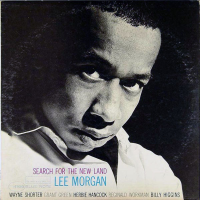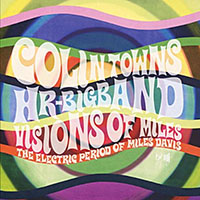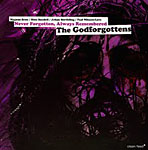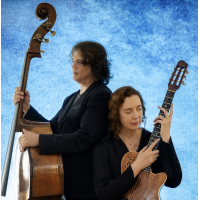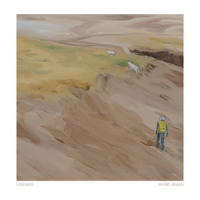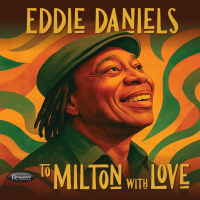Home » Jazz Articles » Extended Analysis » Lee Morgan: Lee Morgan: Search for the New Land
Lee Morgan: Lee Morgan: Search for the New Land
 Lee Morgan
Lee Morgan Search for the New Land
Blue Note / Music Matters
2009 (1964)
Backed by what may have been his most emphatically modern group, trumpeter Lee Morgan did indeed set out on an exploratory quest in this follow-up to his smash, hard bop gem, The Sidewinder (Blue Note, 1964). The title track, which kicks off the album, is more in-line with the music saxophonist John Coltrane was making at the time—a spiritual, meditative piece partitioned into classical-like movements, rather than one of the hard bop soloing vehicles for which Morgan was known. And while those up-tempo grooves are present as well on Search—namely in the invigorating second track, "The Joker," and the somewhat less successful closer, "Morgan the Pirate"—the feel of the album as a whole is one of drift and discovery, celebrating from a perspective of self-realization (or the attempt at such) rather than as part of some nightclub revelry.
"Search for the New Land" opens with an outer-dimensional trill from Grant Green's guitar and drummer Billy Higgins' cymbals, a duet that resurfaces throughout the piece. The tragic, anthemic, yet exhilarating, horn theme blown by Morgan and saxophonist Wayne Shorter adds purpose to Green's and Higgins' echoing waves, setting the intelligence, longing and desire of humanity's drive atop the waves to reach toward unknown, distant possibilities. The music pauses to be reawakened after a space by Reggie Workman's bass. This artifice will be repeated four more times throughout the piece, sectioning it off for the soloists—Shorter, Morgan, Green and pianist Herbie Hancock, in that order—again, giving the music the quality and gravitas of movements as opposed to a continual line of solo jazz choruses.
The disparity in the approaches of Shorter and Morgan is immediately apparent, with Shorter at the forefront of a style that shrugged off the linear path in favor of one that allows for lateral exploration—of communicating and fleshing out a feel, an idea, without concern for telling a recognizable tale. In this, Shorter can be said to be very much of his time and, indeed, a leader and shaper of the sounds that were to emerge as distinctly of the 1960s. Morgan, conversely, is bright and crisp, blowing from the forceful, hard bop school, his aggressive, out-front nature continually on display. He, the leader, and king of his realm, is the one searching here, with Shorter and Hancock as guides leading him into the new, open country where he might further his art. This contrast in styles keeps the record intriguing from beginning to end—the clash, the twining, fashioning a new land perhaps not even sought, but, as with many inventions, stumbled upon while seeking something else.
Green's playing is likewise a revelation, not so much in its inventiveness or departure from his playing elsewhere, but precisely because the tones are instantly recognizable as Green's and yet gleam with an added brightness while in league with these particular musicians and this brand of music. His trademark repeated blues figures cut somewhere between the definitive brass shots of Morgan and the slithering gasps of Shorter. Hancock is the adapter, constantly shifting, constantly inventive in support of the disparate solo voices. When he himself solos, he sounds echoes of the other three, reworking them into a single voice that can be bopped about at his folly and incorporated as an extended dimension of his own distinctive lyricism.
While all the compositions on the album are Morgan's, "Mr. Kenyatta," which kicks off side three of Music Matters' 45-rpm, two-record reissue, might be said to be the trumpeter's way forward as a musical leader, its drive and structure less dependent on the light, pensive modernism than stretched from Morgan's own home turf of aggressive throttling into a still powerful, but more polished, calibrated and slippery statement. "Melancholee," its requisite, forced pun on Morgan's name aside (how and why did puns on leaders' names go so viral in jazz?), is another stab at the new, searching music. Less grand than the title track, it is, nevertheless, a soulful, affecting ballad, the likes of which one might not expect to find on a Morgan record, let alone find more than once.
"Morgan the Pirate" is most notable for its game—intentional or not—of role reversal, with Morgan stretching many of the notes on his solo, allowing his statement to slide and droop rather than be crisply articulated throughout. Shorter, instead, fires off quickly strung lines of well-delineated notes, casting aside his more typical ruminative character. Green, as always, is himself, though his triplets mid-solo are irresistibly cast, snapping loose electrically frayed forms hardly contained by the speakers.
It's a shame Morgan didn't follow the path of this music farther. The subsequent commercial success of The Sidewinder may have made such exploration less desirable in the short run. And his murder at the hands of his common-law wife, Helen More, in February 1972, made the short run and the long run one and the same, even as he once again seemed to be pushing outward (as evidenced by the 1971 Blue Note album that came to be called The Last Session). Still, we have in Search a shining example of the great trumpeter stretching into modernist fields. It is perhaps fitting, given the exploratory tone of the record, and its title track, in particular, that we must imagine what might have come next.
Tracks: Disc One: Search for the New Land; The Joker. Disc Two: Mr. Kenyatta; Melancholee; Morgan the Pirate.
Personnel: Lee Morgan: trumpet; Wayne Shorter: tenor saxophone; Grant Green: guitar; Herbie Hancock: piano; Reginald Workman: bass; Billy Higgins: drums.
Track Listing
Search For The New Land; The Joker; Mr. Kenyatta; Melancholee; Morgan The Pirate;
Personnel
Lee Morgan
trumpetAlbum information
Title: Search For The New Land | Year Released: 1966 | Record Label: Music Matters Ltd.
Tags
PREVIOUS / NEXT
Support All About Jazz
 All About Jazz has been a pillar of jazz since 1995, championing it as an art form and, more importantly, supporting the musicians who make it. Our enduring commitment has made "AAJ" one of the most culturally important websites of its kind, read by hundreds of thousands of fans, musicians and industry figures every month.
All About Jazz has been a pillar of jazz since 1995, championing it as an art form and, more importantly, supporting the musicians who make it. Our enduring commitment has made "AAJ" one of the most culturally important websites of its kind, read by hundreds of thousands of fans, musicians and industry figures every month.


